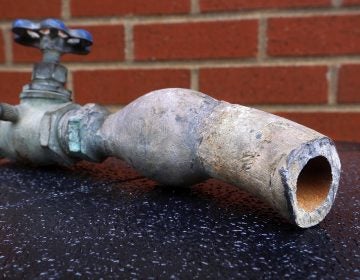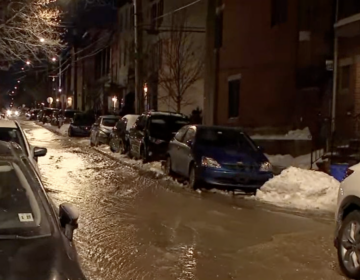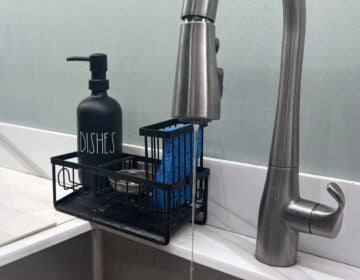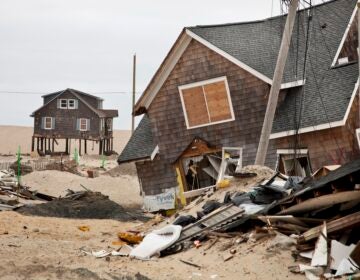Trenton Water Works customers advised to save water as ice builds up in Delaware River
Trenton Water Works recently spent $9 million to prevent water intake blockages, and a design flaw is likely to blame.
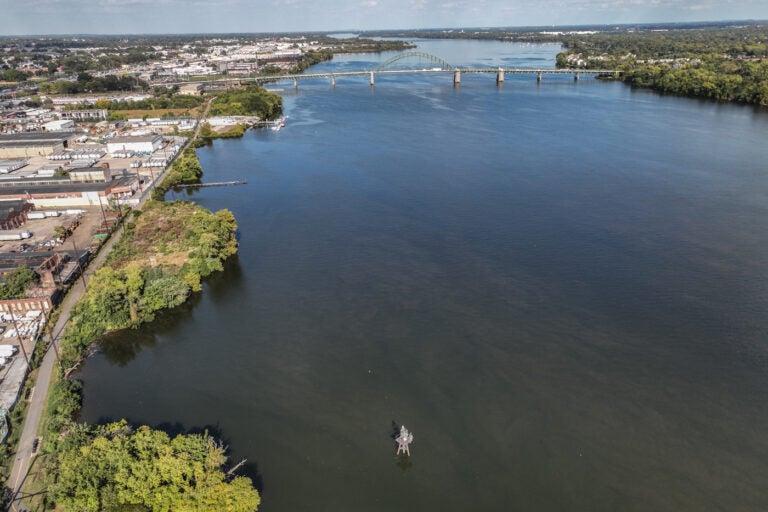
The Delaware River south of the Tacony Bridge in Philadelphia. (Kimberly Paynter/WHYY)
From Philly and the Pa. suburbs to South Jersey and Delaware, what would you like WHYY News to cover? Let us know!
Residents in parts of Mercer County, New Jersey have been urged to limit their water use following frigid overnight temperatures that caused ice to build up in the Delaware River.
Trenton Water Works customers were advised Wednesday evening to only use their tap water for essential purposes. The utility was unable to draw its water supply from the Delaware River because of frazil ice — a collection of ice crystals known to block water intakes.
The Delaware River Basin provides drinking water for more than 13 million people across Delaware, Pennsylvania, New Jersey and New York.
Trenton Water Works recently spent $9 million to prevent water intake blockages, and a design flaw is likely to blame for the rare incident, said spokesman Michael Walker.
“This has never happened before. We have had issues with low river levels, but we haven’t really had an ice issue,” Walker said. “Frazil ice is unique in its geometry and what’s happening is that the frazil ice is clogging the screens of the intake, which is underwater and not allowing water to flow from the river into the intake which then enters the plant for treatment.”
Trenton Water Works is currently purchasing bulk water from New Jersey American Water through an interconnection.
Though the utility was able to draw water Thursday, officials said blockages are expected to happen again as temperatures drop overnight. Walker said customers will likely be advised to reduce their water use for a few days.
“Although the water is safe to drink and it’s very high quality, we want them to limit their use of drinking water for only essential purposes [including] the preparation of meals, basic hygiene, sanitation such as flushing a toilet,” he said.
Customers should avoid non-essential use such as for landscaping, washing a car or filling up a hot tub, Walker said.
Trenton Water Works produces about 33 million gallons of water a day for 217,000 residents in its service area.

Show your support for local public media
WHYY is your source for fact-based, in-depth journalism and information. As a nonprofit organization, we rely on financial support from readers like you. Please give today.



